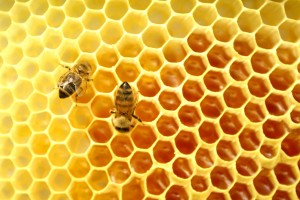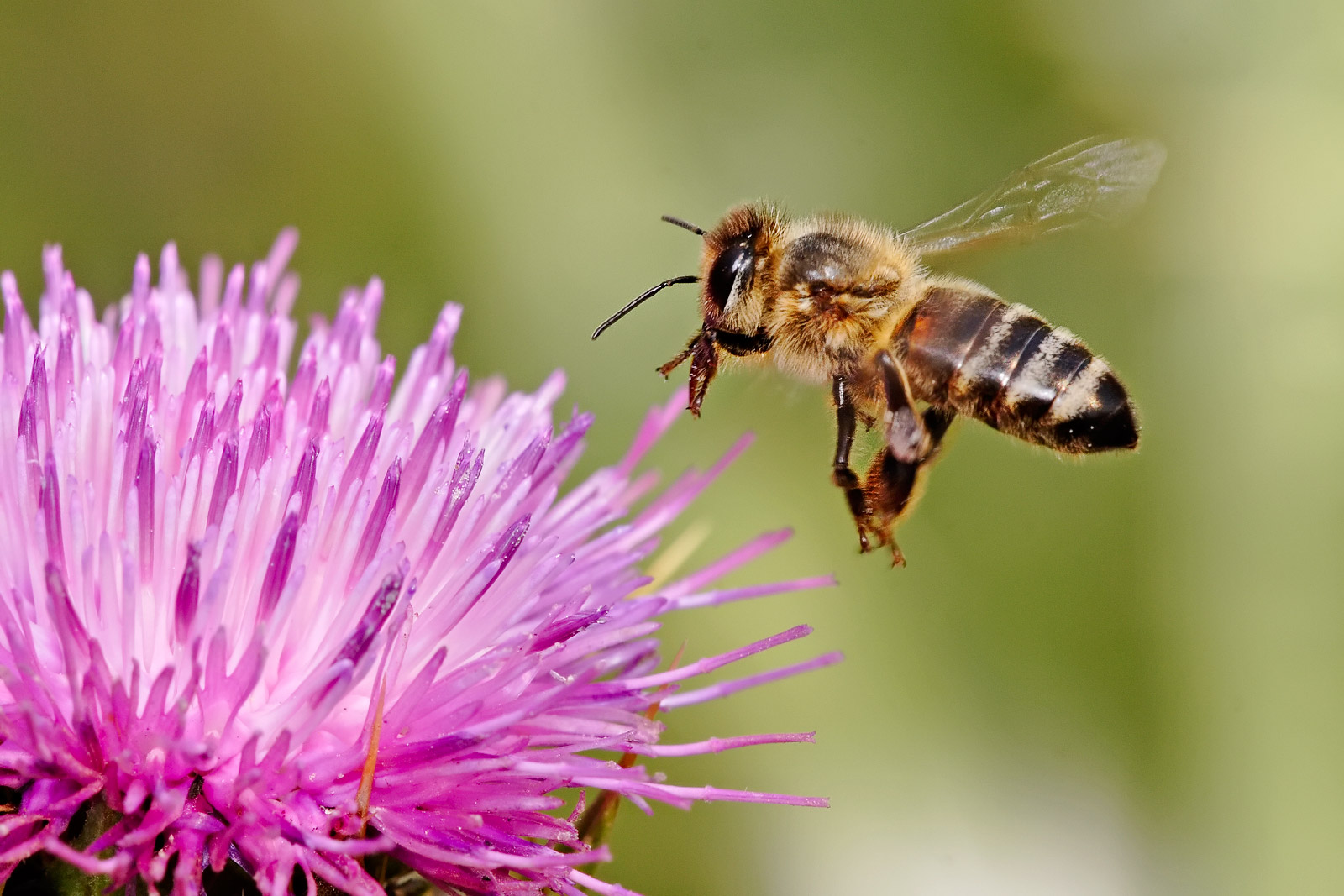The Mysterious Case of the Disappearing Bees
Editor’s note: Noah Wilson-Rich, Ph.D. is the Founder and Chief Scientific Officer of Best Bees Company™ . Best Bees™ delivers, installs, and manages honey bee hives to residents of eastern Massachusetts. 100% of their profits go to fund their research to improve honey bee health through their Apivax™ line of products. Their motto is, “Together, we can save the world, one honey bee at a time.”
By Noah Wilson-Rich, Ph.D., Special to CNN
To all of the readers who don’t think that honey bees are one of the most important concerns of our modern times, let me admit that I know where you’re coming from. I wasn’t the sort of kid who played in the dirt. I was terrified of insects (ew! bugs!), and never forgot my first run-in with a bee that stung me on my sacred pillow as a toddler. But if you eat food and if you enjoy flowers, then you need to pay attention to this.
Honey bees are of vital importance, and their declining populations are an incredibly critical issue. As pollinators, they are responsible for over 130 different fruit and vegetable crops that we eat. As an economic commodity, the cost of some of these crops has already increased because the numbers of honey bees has gone down. This basic supply and demand tilt has already impacted the over $15 billion dollar industry.
Historical context
Honey bees are dying. This is a global phenomenon and a worldwide problem affecting food availability. Like climate change, the decline of honey bees is not unprecedented. There were great die offs of honey bees reported as early as the year 950 A.D. in Ireland, called the “Great Mortality of Bees”. This repeated in Ireland is 992 and 1443. The great die-off crossed the pond in 1903 when 2,000 colonies died in Cache Valley, Utah. Three years later, 100% of hives died on the Isle of Wight, UK. And then, in 1996 and again in 2006, Pennsylvania beekeepers reported alarming numbers of honey bee die offs. These die-offs are continuing today, but under the auspice of a new name, Colony Collapse Disorder.
Researchers still don’t know why honey bees are disappearing. The strangest part of this story is the lack of dead bodies, vanishing into thin air. They’re simply gone. Some of the world’s best researchers, from the USDA to the European Union, are working diligently to solve this mystery. But as any stellar sleuth knows, a mystery is always harder to solve without a body.
What is killing honey bees?
I earned my Ph.D. in biology last year from Tufts University, with a focus on honey bee health. Whenever I give talks about my research and the ongoing crisis with honey bees, I like to open the floor up to hear new ideas from audience members. Responses tend to range from the less likely (cell phones and aliens) to the more likely (pesticides, diseases, and habitat loss).
Whenever I give talks about my research and the ongoing crisis with honey bees, I like to open the floor up to hear new ideas from audience members. Responses tend to range from the less likely (cell phones and aliens) to the more likely (pesticides, diseases, and habitat loss).
The most recent onset of Colony Collapse Disorder was followed immediately by a thorough collection of scientific publications investigating the disease hypothesis. Potentially important findings focused on viral (Israeli Acute Paralysis Virus and an insect iridovirus) and fungal (Nosema) infections. The trouble was that some healthy hives were also infected.
The explanation for what is killing our honey bees is likely more complex. Researchers and beekeepers are now focusing our attention to pesticides, specifically those in a particular class called the neonicotinoids. Frustratingly, the long-term effects of pesticides can remain elusive for many years to come.
What can we do?
I began working with honey bees when I started graduate school in 2005. All it took for me to embrace dirt and insects was one inspiring teacher and mentor – Rebeca Rosengaus at Northeastern University. Dr. Rosengaus encouraged me to attend conferences to learn and to present my own research, and I share that same advice to you. Become a beekeeper or host a beehive. Sponsor honey bee research. Plant bee-friendly flowers. At a minimum, encourage yourself to recognize honey bees as so much more than icky bugs, but vitally important creatures who provide us with food and flowers. Value honey bees.
Source: http://whatsnext.blogs.cnn.com/2012/05/11/the-mysterious-case-of-the-disappearing-bees/








Magnificent goods from you, man. I’ve understand your stuff previous to and you are just extremely fantastic. I really like what you have acquired here, really like what you are stating and the way in which you say it. You make it entertaining and you still take care of to keep it sensible. I can not wait to read much more from you. This is actually a terrific web site.
Terrific paintings! This is the kind of info that are meant to be shared around the net. Disgrace on Google for no longer positioning this post higher! Come on over and discuss with my website . Thanks =)
Throughout the great design of things you actually receive a B- for effort and hard work. Exactly where you confused us ended up being in all the facts. You know, as the maxim goes, the devil is in the details… And that couldn’t be much more true right here. Having said that, permit me say to you precisely what did deliver the results. The article (parts of it) can be quite convincing and that is probably the reason why I am making an effort to comment. I do not really make it a regular habit of doing that. Next, although I can easily notice the leaps in reason you come up with, I am not necessarily confident of just how you seem to unite the details which help to make your final result. For the moment I will, no doubt yield to your point however wish in the future you link your facts better.
You made some respectable factors there. I appeared on the web for the issue and located most individuals will go along with with your website.
Hello, i think that i saw you visited my blog so i came to 搑eturn the favor?I am trying to find things to improve my site!I suppose its ok to use a few of your ideas!!
I’m curious to find out what blog platform you are utilizing? I’m experiencing some minor security issues with my latest website and I’d like to find something more risk-free. Do you have any solutions?
I am not sure where you are getting your information, but great topic. I needs to spend some time learning much more or understanding more. Thanks for magnificent info I was looking for this information for my mission.
A person essentially assist to make severely articles I might state. That is the very first time I frequented your website page and to this point? I amazed with the research you made to make this particular put up amazing. Great process!